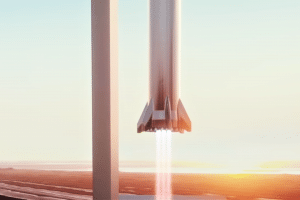Last week, SpaceX completed another massive equity funding round of $850 million, effectively bringing the valuation of the company to about $74 billion. The update was associated by a number of individuals reportedly familiar with the financing.
The private space company of Elon Musk raised new funds at a rather interesting price of $419.99 per share, just 1 cent away from $420, an amount that after the infamous “funding secured” fiasco of the CEO in 2018 has become infamous in Tesla lore. With the recent funding round, the valuation of SpaceX has effectively jumped about 60 percent from its previous round in August, when almost $2 billion was raised by the company. The August funding round resulted in an estimated valuation of $46 billion for SpaceX.
Interestingly enough, as per a report from CNBC, insiders and existing investors were reportedly able to sell $750 million in a secondary transaction. SpaceX also reportedly raised only a portion of the funding available in the marketplace, with one of the insiders informing the news outlet that the private space firm received insane demand of about $6 billion in offers over three days.
The recent funding round definitively reinforced the SpaceX war chest, and it also enables the company to pursue two of its most capital-intensive projects to date. One of these is the further construction of Starlink, a satellite constellation which aims to provide remote areas with high-speed, stable internet access. In the past, SpaceX has indicated that Starlink will cost about $10 billion to build, although the company also noted that it expects to bring in as much as $30 billion per year from the constellation. That’s over ten times SpaceX’s annual rocket business revenue.
So far, Starlink has launched over 1,000 constellation satellites, and recent filings last week by the Federal Communications Commission revealed that the public beta of the service now has over 10,000 users in the United States and abroad. Starlink’s initial reception has been generally positive so far, with remote users noting that satellite internet service is much faster and more stable than their previous internet providers.
SpaceX is also busy with the Starship program, a challenging effort to develop a reusable spacecraft that could take humans to other planets. The development of Starship was very quick, although SpaceX has yet to successfully land one of the prototypes of the spacecraft. Starship could pave the way for mainstream space travel, and perhaps even the colonization of Mars, once completed.





